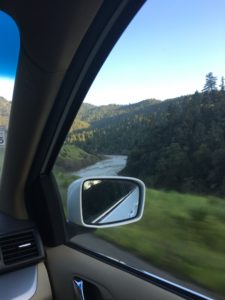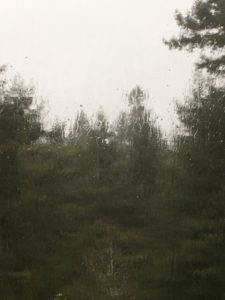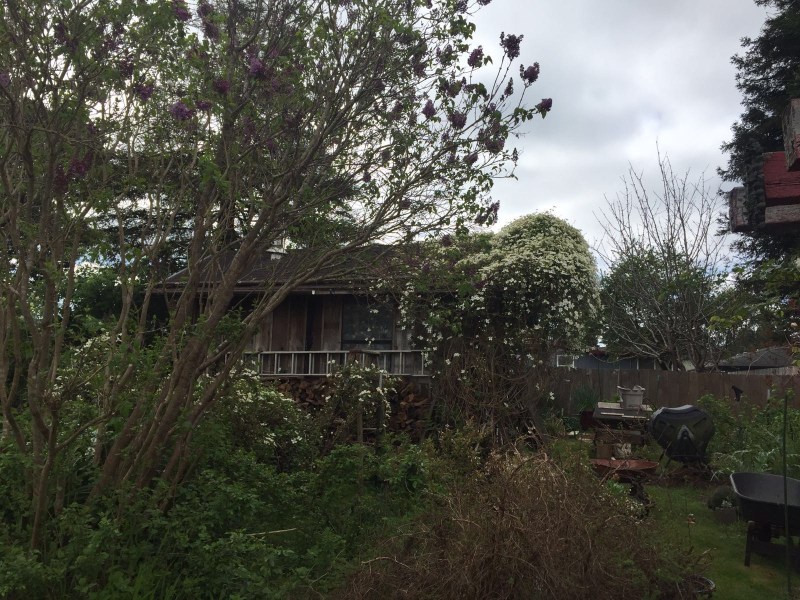
A friend once described college as the act of having your heart in two places. I call both Stanford and Eureka, California home and do not know how to reconcile these two very different spheres. Eureka is an isolated town of 26,000 residents. It’s a four-hour drive from the next city and a six-hour drive north from Stanford. Few people leave Eureka, and of those who do, few return. As a result, college has caused me wonder not only what constitutes home but also upon my hometown obligations. After coming to an elite institution, what responsibility do I have to my native community?
A New York Times article, “The Best and Worst Places to Grow Up: How Your Area Compares,” maps income mobility by county across the United States. Eureka is located in Humboldt County, and according to the study, children who grow up in Humboldt’s poor families will make an average of $790 less than children of poor families across the U.S. It reads, “Humboldt County is pretty bad for income mobility for children in poor families. It is better than about 26 percent of counties,” putting it in nearly the bottom quarter. The statistics are nearly twice as bad for girls.
So what do all of these numbers have to do with my sense of home? Growing up in an upper-middle class family in a poor community gave me advantages my peers didn’t have. Coming to Stanford gave me even greater privilege. I do not feel Stanford is a golden ticket to success; getting an education and finding a job still requires work. However, attending an institution like Stanford equips a student with opportunities that are simply unimaginable at other places. Since coming here, I have been able to study abroad, hear President Obama speak in person and receive funding for an unpaid internship in a rural community similar to my own. Experiences like these do not secure a six-figure paycheck, but they open a lot of doors. So, after being raised by a so-called “very bad” community and coming to an elite institution of opportunity, what am I supposed to do?
I feel that my moral duty is to return to Eureka, but I am torn by my increasing connections to Stanford/the Bay Area. Eureka is tight-knit, but certain personal characteristics made much of my time there terribly lonely. Having a special needs brother made me intensely aware of the everyday good fortune with which each child is born. My seriousness and resentment of the class clowns — who seemed to take their brains for granted — ostracized me from my peers. I enjoyed loving relationships with my family, close friends and the congregation at my church, but at school, I was bullied. I also battled depression and anxiety following two hip surgeries that left me unable to run, my favorite activity. Despite the fact that I would have faced these challenges anywhere, I came to associate Eureka with an unhappy part of myself. This association is lessened by the love I feel for my family and the beauty of the town, but it still exists, making me weary of returning. Still, how can I leave the community that raised me — especially when it needs so much? Don’t I owe it to that community to return? These questions continue to circle in my mind.

I became an international relations major with the intent of pursuing human rights for immigrants and refugees, but in looking broadly, I fear I have forgotten the needs of my hometown. Eureka struggles with an overloaded foster care system, too little funding to combat drug crimes and too little interest from the rest of California. Its small population gives it little voice in the state legislature, making funding for change difficult to obtain.
Before coming to Stanford, I did not realize how much the rest of the state overlooks Eureka. I have frequently been told upon trying to explain where my hometown is that “California doesn’t really matter past San Francisco.” There are no big cities, theme parks or areas of dense population, so many students I talk with do not count it as part of the state. These words are a dismissal of all I grew up with and remind me that Eureka is a forgotten community.
What truly differentiates Stanford from Eureka is the sense of opportunity. At Stanford and around the Bay Area, I feel as though I can pursue any career — I might fail, but everything is here for me try. I do not feel the same about Eureka. Being four hours from the nearest city doesn’t just limit what you can visit; it also limits what can visit you. Colleges like Stanford don’t recruit in Eureka, so students view them as being unattainable. My high school counselor discouraged me from applying, stating that students from our area “didn’t do well outside.” I am the first person in eight years from my high school to come to Stanford, not because Eureka lacks talent or intelligence but because too many students lack encouragement and resources.
I come from a college-educated family who could help me navigate the application process. This is not the case for many other students living in low-income communities — rural or urban. Consequently, few people from my high school left the area for college. (Though I’m proud to say more and more are going to college.) Because no one leaves, no outside skills are gained, and though generational knowledge is extremely valuable, there is a limit to how applicable it can be to modern problems. Eureka needs people to leave and return with new knowledge (as my mother did), but it’s frightening to leave such an insular community for one that seems to have forgotten us. New industry and jobs cannot be created without outside knowledge, but once someone has left, it’s tempting to stay in a more urban, developed area where a greater variety of career opportunities exist.
University recruiters aren’t the only ones to shy away from Eureka. My brother’s first neurologist was based at UCSF, and my hip specialists operated out of Sacramento, Napa and Stanford. Hearing that California doesn’t matter past San Francisco makes me feel as though my home’s medical needs don’t matter. Though the population is small, its needs are great. Eureka dwellers face travel expenses in order to receive specialized care. Having come to Stanford, I feel it is my responsibility to bring my education back home, but at the same time, I am drawn to fix injustice at a more global scale (especially given the recent anti-immigration fervor). I feel pulled in two by my moral beliefs. Should I work for broad change or return home to work at the local level? I cannot simultaneously give my all to both, and I don’t know what is right.
The more important question for myself and for all my Stanford peers is this: What moral responsibility do we have to our communities? If we come from inner cities, from rural areas, from, as the New York Times article phrased it, “very bad” origins, don’t we owe it to those places to make them better? In the novel “A Tree Grows in Brooklyn,” Betty Smith writes, “A person who pulls himself up from a low environment via the bootstrap route has two choices. Having risen above his environment, he can forget it; or, he can rise above it and never forget it and keep compassion and understanding in his heart for those he has left behind him in the cruel upclimb.” I do not believe it is wrong to better yourself or to pursue a high-paying job, but it is wrong to forget those who do not have the means to follow you.
Writing on disability, I stated in my Stanford personal statement essay that there is a difference between observing and enduring. The person who has lived through a hardship knows it better than any outside observer. An ally, no matter how dedicated, cannot fight for change without first asking the affected group what they need done. If you come from a “bad community,” you are the best possible person to fight for it. You have seen its struggle and its beauty first hand. I believe it is wrong to abandon a broken community because in doing so, you rob it of its greatest voice.
Eureka is still the most beautiful place I have ever seen. The people carry compassion and love giving food, clothing and comfort when tragedy strikes. They raised me to be the person that I am and they are the reason I was able to come to Stanford. Nevertheless, Eureka and places like it are plagued by underfunded schools and overcrowded social service systems.
The “Stanford bubble” is an overused but accurate phrase. The campus is dazzling, but it also helps us to keep our eyes shut to the outside world. I still don’t know what I have done to deserve Stanford’s privilege or how to give back an amount equal to what I’ve received. Especially now, in a time of deep uncertainty, we must remember those we have left behind. I challenge each reader to think about the needs around them. Do not bury your burdens but instead hold them up as a symbol of triumph. I cannot say what I will do to leave my mark on the world, but I know I will act with both of my homes in mind, and I will be better for this.
Contact Madeline Musante at mmusante ‘at’ stanford.edu.
